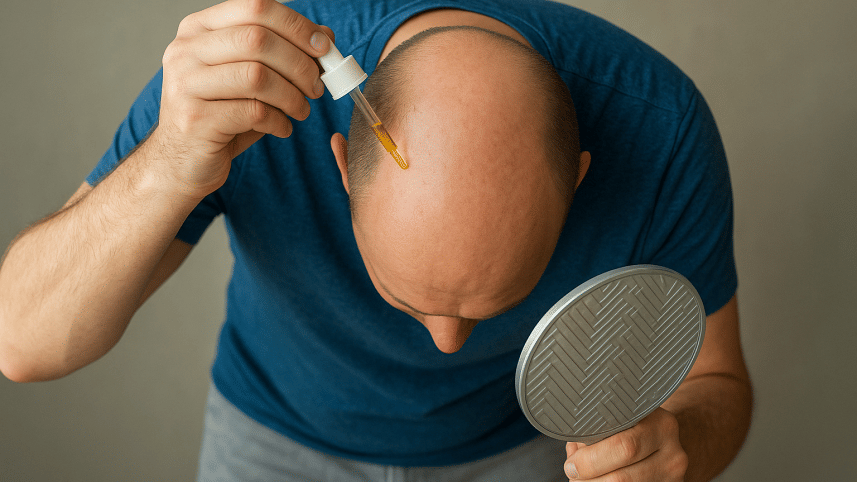Going bald? This 20-day regrowth formula could be the game-changer

Imagine applying a serum and watching your bald spots vanish in just 20 days. Sounds like a scam ad, right? But this time, its science talking.
Researchers from National Taiwan University have developed a topical serum that regrows hair faster than most shampoos claim to stop dandruff. In lab tests on bald mice, the animals went from fuzzy patches to full pelts in less than three weeks — no surgery, no hormone pills, just a dollop of science-backed fatty acids.
But before you throw away your cap collection, let's break down what's actually going on.
At the heart of this discovery are monounsaturated fatty acids — the good fats found in olive oil and avocados. Specifically, two of them: oleic acid (C18:1) and palmitoleic acid (C16:1). Turns out, these fatty acids aren't just heart-friendly — they may be hair-friendly too.
When the skin gets slightly injured (like from a scrape or cosmetic microneedling), the body sends immune cells to the rescue. These immune cells, in turn, tell fat cells just beneath the skin to release these fatty acids. The fatty acids then sneak into hair follicle stem cells using a gateway protein called CD36, waking them up like a double shot of espresso.
Researchers bottled this natural process into a serum. They applied it to hairless mice — and boom, hair regrowth. The process activates a cellular pathway called PGC1-alpha, which jumpstarts cell energy and regeneration.
As exciting as this is, it's still mouse-level science. Human trials haven't started yet, and experts warn against rubbing olive oil on your head and expecting miracles. There's a reason this serum isn't available on pharmacy shelves yet, because human skin is different, and scalp hair grows on a different cycle. Moreover, the long-term safety for humans is still unknown.
Despite the caution, this breakthrough opens up a new chapter in regenerative medicine. It shows that fat cells — long blamed for love handles — may actually hold the key to hair restoration.
The researchers are now planning further experiments and — if all goes well — eventual clinical trials on humans.



 For all latest news, follow The Daily Star's Google News channel.
For all latest news, follow The Daily Star's Google News channel.
Comments